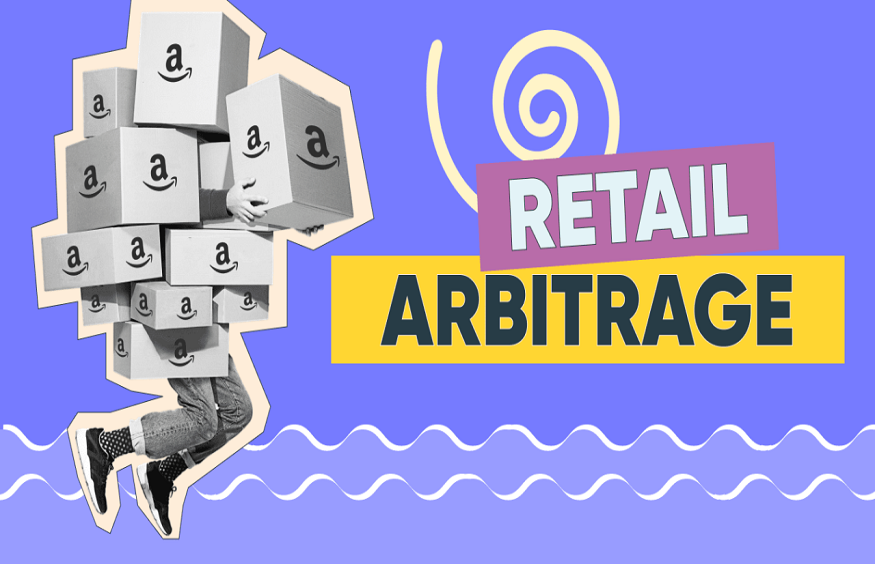Online Arbitrage has emerged as a popular strategy for savvy entrepreneurs looking to capitalize on price differentials across online marketplaces. Two giants in the e-commerce landscape, Amazon and eBay, offer distinct platforms for sellers to engage in arbitrage. In this article, we will delve into the key differences between Amazon and eBay for arbitrage, exploring the advantages and challenges each platform presents.
Steve Raiken, a seasoned entrepreneur and founder of Raiken Profit, has solidified his position as a distinguished 6-figure Amazon seller over the course of a decade. Renowned for his expertise in sourcing and selling books, DVDs, and board games, Steve’s commitment to exceptional customer service and delivering top-notch products has been instrumental in his Amazon success story.
Beyond his thriving online sales, Steve actively engages with the e-commerce community, generously sharing his wealth of knowledge and experiences to support aspiring entrepreneurs in building and expanding their Amazon businesses.
With an impressive track record and unwavering dedication to quality, Steve Raiken stands as a trusted and respected figure in the world of Amazon selling. Steve breaks down the most effective strategies for eBay to Amazon Arbitrage, giving you the inside scoop on maximizing profits with that good ol’ American hustle.
Seller Ecosystems
Amazon is renowned for its vast and diverse product catalog, with a focus on brand-new items. The Fulfillment by Amazon (FBA) program provides sellers with the opportunity to leverage Amazon’s robust logistics network, handling storage, packing, and shipping of products. This can be advantageous for sellers engaged in arbitrage, streamlining the fulfillment process.
In contrast, eBay has a more open marketplace where both new and used items can be sold. Sellers on eBay often have more flexibility in setting prices and shipping methods. However, the absence of a centralized fulfillment service like FBA means that sellers are responsible for managing their own inventory and shipping logistics.
Pricing Dynamics
Amazon tends to prioritize competitive pricing and relies heavily on algorithms to determine product rankings. This can be advantageous for arbitrageurs who are adept at identifying products with price differentials between Amazon and other platforms. However, the competitive nature of pricing on Amazon may lead to thinner profit margins.
eBay’s auction-style and fixed-price listing formats give sellers more control over pricing strategies. This can be beneficial for arbitrageurs looking to experiment with different pricing models to maximize profits. Additionally, the auction format may occasionally result in opportunities for buyers to bid above market value.
Product Restrictions and Categories
Amazon has stringent guidelines regarding the types of products that can be sold on its platform. Certain categories, such as restricted brands and restricted products, may pose challenges for arbitrageurs. However, adherence to Amazon’s policies is crucial for long-term success.
eBay has a more lenient approach to product listings, allowing a broader range of items. This flexibility can be advantageous for arbitrageurs looking to explore niche markets or deal in products that may face restrictions on other platforms. However, sellers should still comply with eBay’s policies to maintain a positive reputation.
Customer Base and Trust
Amazon is known for its vast customer base and trustworthiness. Buyers often turn to Amazon for the reliability of product quality and efficient shipping. For arbitrageurs, this means potential access to a massive audience, but they must maintain high standards to meet customer expectations.
eBay, with its auction-style format, may attract a different type of buyer. While eBay has a loyal customer base, trust can vary depending on individual seller ratings and reviews. Building a positive reputation on eBay is crucial for arbitrageurs to instill confidence in buyers.
Conclusion
In the realm of e-commerce arbitrage, both Amazon and eBay offer unique opportunities and challenges. Amazon’s focus on new products and streamlined logistics through FBA can be appealing, while eBay’s flexibility in product listings and pricing strategies provides a different avenue for arbitrageurs. Success in either platform requires a deep understanding of the marketplace dynamics, adherence to platform policies, and a commitment to delivering excellent customer experiences. Ultimately, the choice between Amazon and eBay for arbitrage depends on the individual preferences, strategies, and goals of the seller.


